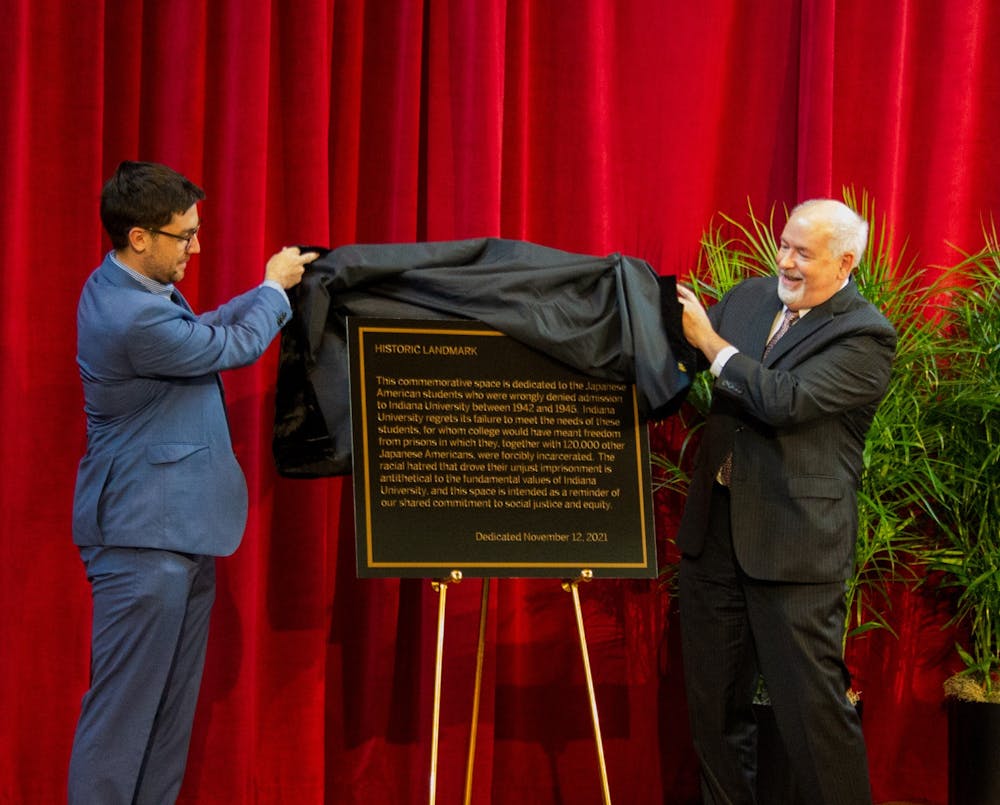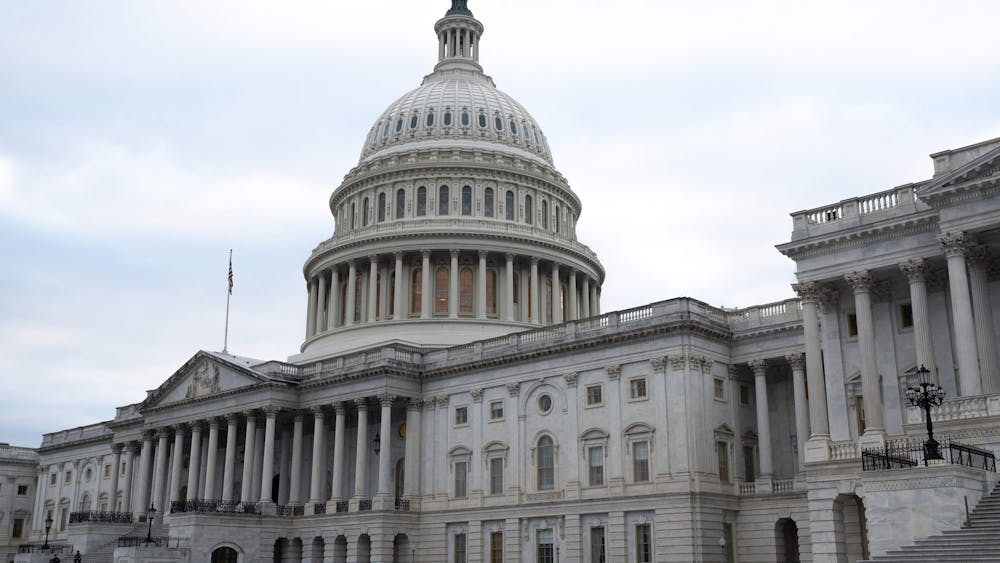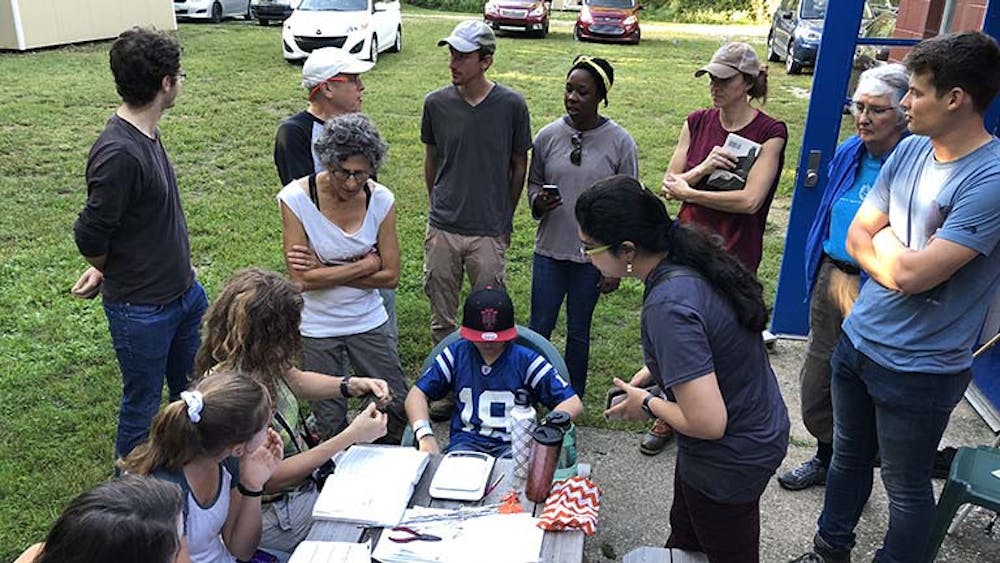An IU ceremony Friday dedicated a Japanese American Ban Memorial to raise awareness and apologize for IU’s history of denying admission to Japanese American students during World War II.
The memorial is a commemorative space between the Wells Library and the Hamilton Lugar School of Global and International Studies, including a bench and a plaque on a boulder describing the treatment of Japanese Americans during World War II.
The Office of the Provost and Executive Vice President organized the dedication ceremony. Interim Provost and Executive Vice President of the IU Bloomington campus, John Applegate, began the ceremony saying he hoped the memorial would renew the university’s commitment to create a diverse and equitable community.
“The Japanese American Ban Memorial symbolizes Indiana University’s deep regret for its unjust treatment of Japanese Americans during World War II,” Applegate said.
In February 1942, U.S. President Franklin Roosevelt signed Executive Order 9066 after the bombing of Pearl Harbor to start forcibly incarcerating Japanese Americans in internment camps. On May 9, 1942, the IU Board of Trustees voted to ban Japanese American students from attending the university.
The ban was repealed in September 1945, but by then, Applegate said 12 Japanese American students had been denied admission and many others had been discouraged from applying.
“By denying admission to these individuals, Indiana University made itself complicit in egregious denial of basic human rights based solely on race and ethnicity,” Applegate said. “Indiana University deeply and unreservedly regrets these actions.”
A number of initiatives are underway to address IU’s violation of Japanese American student applicants’ civil rights during the war.
Applegate announced the creation of the Masuji Miyakawa scholarship for underrepresented students which will be instituted starting in the 2022-23 academic year. The scholarship is named after the first Japanese American graduate from the Maurer School of Law. It will be offered to three students each year until it accepts 12 in total, honoring the 12 Japanese students who were denied admission.
Also, the Asian Culture Center will have a Day of Remembrance panel discussion in February 2022 on the anniversary of Roosevelt's executive order. Another initiative is Professor Karen Inouye’s new course on the internment of Japanese Americans.
Applegate and alumnus Eric Langowski unveiled a replica of the plaque for the memorial at the end of the ceremony.
Langowski submitted a petition to the IU Board of Trustees, former IU President Michael McRobbie and former IU Provost Lauren Robel on Feb. 19, 2020 urging IU administrators to acknowledge and apologize for the university’s ban. He had published research on the ban as an IU undergraduate.
In response, the administration created a Japanese American ban advisory group in the fall 2020, which recommended the construction of a commemorative place on campus.
Langowski said it was important to have the university address its past treatment of Japanese students and apologize, so that it is not forgotten. His grandmother was incarcerated in Colorado during World War II and was denied admission to schools, he said.
“This is a tangible way for the university to put something behind their statements of diversity and equity,” he said. “Our work is to keep making sure that IU is as inclusive and open to everyone who wants to come and study here.”
Langowski said he hopes people will learn about Japanese American history and a more complete version of IU’s history.
“There's this weird series of myths that the first-year folks and the RAs all tell all the students, and to some extent, that's like the main way most people engage with the history of the university,” he said. “We wanted to tell all the histories of IU, not just the positive ones, and to really change how we engage with the history of IU beyond just the myths.”
Langowski said students and visitors are told stories of former IU President Herman B Wells adding lamp posts and desegregating the campus. However, he said there is very little discussion about Wells’s role in banning Japanese Americans from the school.
Asian Culture Center director Melanie Castillo-Cullather said the event and memorial will bring awareness to IU’s history and the experience of many Asian Americans during the war.
“It will keep our community on campus engaged with questions that even today people wrestle with, such as issues on citizenship and inclusion,” Castillo-Cullather said. “IU's apology signals a commitment to ensure that we work together to make an inclusive campus.
She said the memorial is a reminder IU can do better, and it is important to continue to create policies that ensure inclusivity.
“I hope people will learn that it is never too late for institutions to apologize, or to acknowledge that mistakes were made in the past,” Castillo-Cullather said. “I also hope that we will not repeat the same injustice that was done to the Japanese American students, their families and the community.”






